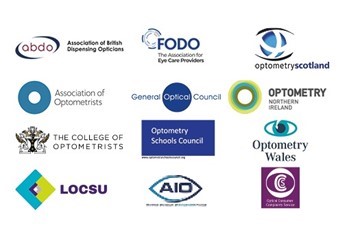- Home
- News
- News and press releases
- Regulator and sector organisations move to tackle significant levels of bullying, harassment and discrimination in optical professions
Regulator and sector organisations move to tackle significant levels of bullying, harassment and discrimination in optical professions
The General Optical Council (GOC), the regulator of optical professions and businesses in the UK, has today published a joint statement alongside organisations from across the optical sector committing to a zero-tolerance approach to bullying, harassment, abuse, and discrimination across all working environments.
The signatories, including professional and membership bodies, agreed the statement in response to a meeting convened by the GOC to address its recently commissioned registrant survey, which showed that registrants reported experience of significant levels of bullying, harassment, abuse, and discrimination at work.
Key findings from the survey include:
- 41% of respondents reported having experienced harassment, bullying, or abuse at work from patients and service users, their relatives, or other members of the public in the last 12 months.
- 18% reported experiencing harassment, bullying, or abuse from managers, and 16% had experienced this treatment from other colleagues.
- 24% of respondents said they had experienced discrimination from patients and service users, their relatives, or members of the public.
- The most common form of discrimination was racial (44%), followed by sex and age-based discrimination (both 32%).
The statement reads as follows:
Organisations from across the optical sector, including employers and professional and membership bodies, attended a meeting on 3 October to discuss the GOC’s survey findings on bullying, harassment, abuse, and discrimination at work.
Findings from the GOC’s registrant survey show a worrying level of GOC registrants reporting negative and damaging behaviours in the workplace, from patients, colleagues and managers, with many feeling unable to report their experiences. The survey data shows that registrants with one or more protected characteristics were more likely to report experiencing bullying, harassment, abuse, and discrimination at work.
In response to these findings, we will all work together to promote a safe and positive working environment for all members of the optical team. Discriminatory and unacceptable behaviours can have damaging effects on the mental health and wellbeing of individuals and teams, which in turn can impact on patient care.
As a sector we are committed to a zero-tolerance approach to bullying, harassment, abuse, and discrimination across all working environments. We all commit to promoting and embedding a positive working environment that is based on respect, civility, compassion, and inclusion. We will be working together to support all team members with the support and tools they need to help achieve this.
This statement is supported by:
Association of Optometrists
Association of British Dispensing Opticians
Association for Independent Optometrists and Dispensing Opticians
FODO: The Association for Eye Care Providers
General Optical Council
Local Optical Committee Support Unit
Optical Consumer Complaints Service
Optometry Wales
Optometry Northern Ireland
Optometry Scotland
Optometry Schools Council
The College of Optometrists

GOC Chief Executive and Registrar Leonie Milliner said: “We were extremely concerned about the findings of our Registrant Workforce and Perceptions Survey, which found that high numbers of optical professionals are experiencing bullying, harassment, abuse, or discrimination in the workplace, which go largely unreported.
It is critical for public protection and patient care that optical professionals can work in supportive environments without fear of abuse. Negative and unhealthy workplace cultures can have a detrimental effect on both recruitment and retention, potentially leading to workforce shortages, with consequential negative impacts on patient care.
We are pleased that organisations from across the optical sector are committed to working together to do more to promote positive working environments, so that optical professionals can continue to deliver excellent care to patients and communities, without fear of bullying, harassment, abuse and discrimination.”